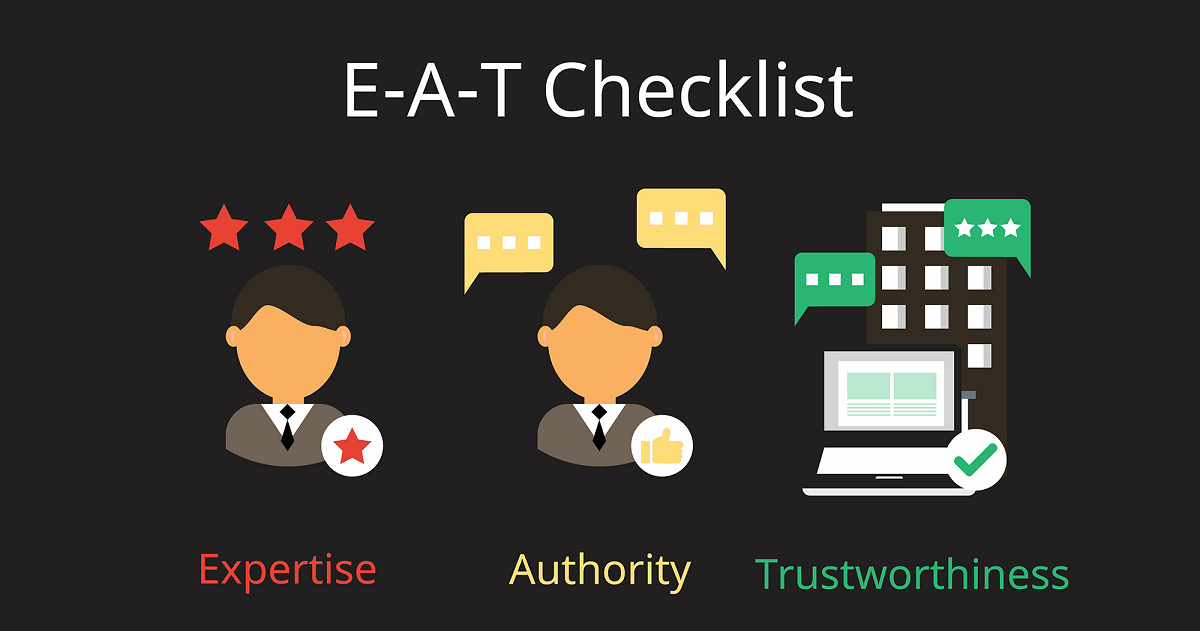BLOG
The Role of SSL Implementation in Website Security

In the vast landscape of digital security, one crucial element stands out as a cornerstone of safeguarding online transactions and user data: SSL implementation. The role of Secure Sockets Layer (SSL) in fortifying website security cannot be overstated. As cyber threats evolve in sophistication, the need for robust encryption mechanisms becomes increasingly imperative.
SSL, now typically referred to as TLS (Transport Layer Security), serves as the bedrock of establishing a secure connection between web servers and browsers. Its implementation encrypts data transmitted between these endpoints, thwarting malicious actors' attempts to intercept or tamper with sensitive information. Beyond its fundamental function of encryption, SSL certification also plays a pivotal role in establishing trust and credibility with users.
Websites displaying the padlock symbol and "https" in their URLs signal a commitment to protecting user privacy and data integrity. Understanding the significance of SSL implementation is paramount for website owners and developers alike in ensuring a resilient defense against cyber threats.
Understanding SSL/TLS: A Primer
SSL/TLS protocols ensure secure communication by encrypting data between web servers and browsers. Using a mix of asymmetric and symmetric encryption, SSL/TLS establishes a secure session, safeguarding data integrity and confidentiality.
Understanding SSL/TLS basics is essential for grasping secure online communication mechanisms. This primer explores SSL/TLS foundational concepts, highlighting their role in cyber threat mitigation and website security enhancement.
From handshake protocols to certificate validation, mastering SSL/TLS intricacies is crucial for implementing robust security measures in digital environments.
Encryption Essentials: How SSL Safeguards Data
SSL's core mission is to safeguard internet-transmitted data through encryption. When users engage with SSL/TLS-secured websites, a cryptographic handshake occurs between their browser and the server. This process involves negotiating encryption algorithms and exchanging cryptographic keys to ensure data confidentiality.
SSL employs symmetric encryption, encrypting data with a unique session key exchanged securely during the handshake. This key is then used to shield data from interception or tampering. Robust encryption mechanisms not only protect sensitive information but also foster user confidence in online security.
Importance of SSL Certificates in Web Security
SSL certificates are crucial for web security, encrypting data and building trust between users and websites. Without them, sensitive information is vulnerable to interception. Prioritizing SSL implementation is essential for mitigating cybersecurity risks and complying with regulations. Here are five key reasons why SSL certificates are vital:
- Encryption and Data Protection: SSL certificates encrypt data during transmission, preventing unauthorized access and ensuring privacy.
- Trust and Credibility: Websites with SSL certificates display the padlock symbol and "https" in the URL, instilling confidence in users and enhancing trust.
- Prevention of Cyber Attacks: SSL certificates help mitigate the risk of man-in-the-middle attacks and data interception, safeguarding sensitive information.
- Compliance with Regulations: SSL certificates are essential for compliance with data protection regulations such as GDPR and HIPAA, demonstrating adherence to security standards.
- Improved SEO Performance: SSL-certified websites receive a ranking boost in search engine results, enhancing visibility and attracting organic traffic.
SSL certificates play a pivotal role in enhancing web security and fostering trust online. Don't overlook their importance in safeguarding your website and protecting user data.
Preventing Data Interception: SSL's Role Explained
SSL prevents data interception by encrypting information transmitted between a user's browser and a web server. Without SSL, sensitive data like login credentials and credit card numbers could be intercepted and exploited.
SSL uses strong encryption algorithms to scramble data during transmission, making it indecipherable without the decryption key. This proactive security measure ensures privacy and integrity, fostering trust in online interactions. Understanding SSL's role in preventing data interception is crucial for bolstering website security.
SSL Implementation Best Practices for Website Owners
Implementing SSL effectively requires adherence to best practices that ensure optimal security and performance. Here are some key steps website owners should consider:
- Choose a Reputable Certificate Authority (CA):Select a trusted CA to obtain an SSL certificate, ensuring it is issued by a reputable source.
- Install and Configure SSL Correctly:Install the SSL certificate on your web server and configure it correctly to enable HTTPS encryption.
- Keep SSL/TLS Protocols Updated:Regularly update SSL/TLS protocols and cryptographic algorithms to address emerging security vulnerabilities and ensure compatibility with modern browsers.
- Enforce HTTPS Across Your Website:Enforce HTTPS across all pages of your site to provide comprehensive protection for users' data and ensure a consistent secure browsing experience.
- Conduct Regular Security Audits:Regularly conduct security audits and vulnerability scans to identify and remediate any potential weaknesses in SSL implementation, ensuring ongoing protection against cyber threats.
By following these best practices, website owners can maximize the effectiveness of SSL in safeguarding their sites and protecting user data from unauthorized access or interception. Prioritizing SSL implementation is essential for maintaining trust and credibility in the digital landscape.
Enhanced User Trust: The Psychological Impact of SSL
SSL not only enhances website security but also boosts user trust. When users see the padlock icon and "https" in the browser, they perceive the site as secure. This perception is reinforced by knowing SSL protects their data. Users prefer sites with SSL, feeling their privacy is prioritized.
Conversely, the lack of SSL can raise suspicion and deter user engagement. Thus, SSL's impact goes beyond security, shaping user behavior and perceptions of website credibility.
SSL's Contribution to Regulatory Compliance
SSL's Contribution to Regulatory Compliance is paramount in today's digital landscape, as data protection regulations continue to evolve and tighten. Implementing SSL encryption is not only a best practice for website security but also a crucial step towards meeting compliance requirements. Here's how SSL contributes to regulatory compliance:
- Data Protection: SSL encryption helps prevent unauthorized access to sensitive data during transmission, aligning with regulations such as GDPR and HIPAA.
- Trust Building: SSL certificates signal a commitment to safeguarding user privacy, enhancing trust and confidence in compliance with regulatory standards.
- Security Audits: SSL implementation is often a requirement in security audits and assessments to demonstrate adherence to compliance standards.
- Legal Compliance: Failure to implement SSL encryption can result in legal liabilities and penalties for non-compliance with data protection regulations.
- Reputation Management: Maintaining SSL encryption not only ensures compliance but also protects the organization's reputation and integrity in handling user data.
SSL's contribution to regulatory compliance goes beyond mere encryption; it's a strategic imperative for organizations to mitigate risks, uphold ethical standards, and safeguard user trust in an increasingly regulated digital environment.
SSL and SEO: Impact on Website Ranking and Visibility
SSL encryption also has implications for search engine optimization (SEO), influencing website ranking and visibility in search engine results pages (SERPs). In 2014, Google announced that SSL would be considered a ranking factor in its search algorithm, prioritizing secure websites over non-secure ones.
Websites with SSL certificates receive a slight boost in their search rankings, making them more likely to appear higher in SERPs compared to unsecured websites. Moreover, Google Chrome, the most popular web browser, marks non-secure websites with a "Not Secure" warning, potentially deterring users from accessing them.
Therefore, implementing SSL not only enhances website security but also improves SEO performance, driving organic traffic and increasing visibility online. As search engines continue to prioritize security and user experience, SSL encryption has become integral to achieving and maintaining a competitive edge in the digital landscape.
Emerging Trends in SSL/TLS Protocols
SSL/TLS protocols are continuously evolving to address emerging security threats and enhance encryption standards. One notable trend is the deprecation of older SSL and early TLS versions due to vulnerabilities such as POODLE and BEAST attacks.
Consequently, organizations are encouraged to upgrade to more secure versions of TLS, such as TLS 1.2 and TLS 1.3, to mitigate risks and ensure compatibility with modern security standards. Another emerging trend is the adoption of certificate transparency, a framework that provides greater visibility into SSL certificate issuance and helps detect malicious certificates.
Additionally, advancements in post-quantum cryptography aim to future-proof SSL/TLS protocols against quantum computing threats, ensuring long-term security for encrypted communications. By staying abreast of these emerging trends and implementing the latest SSL/TLS protocols, organizations can maintain robust security posture and protect against evolving cyber threats.
Beyond Encryption: Additional Benefits of SSL Implementation
While encryption is the primary function of SSL, its implementation offers a range of additional benefits that contribute to overall website security and performance. One such benefit is improved website loading speed, as SSL/TLS protocols incorporate features such as session resumption and TCP optimization to optimize data transmission.
Moreover, SSL certificates enhance website credibility and brand reputation by signaling a commitment to security and user privacy. This can lead to increased customer trust, higher conversion rates, and improved customer retention. Additionally, SSL encryption helps prevent data tampering and phishing attacks, safeguarding user trust and loyalty.
Furthermore, SSL implementation is essential for enabling advanced security features such as HTTP/2 and secure cookie attributes, which enhance website functionality and resilience against cyber threats. Therefore, beyond encryption, SSL offers a myriad of benefits that contribute to a safer, more reliable, and trusted online experience for users and website owners alike.
The role of SSL implementation in website security is undeniable, serving as a fundamental pillar in safeguarding online interactions and protecting sensitive data from cyber threats. From understanding the basics of SSL/TLS protocols to implementing best practices for SSL certificate management, website owners can fortify their defenses against data interception and unauthorized access.
Moreover, SSL not only enhances technical aspects of security but also fosters user trust and confidence, contributing to regulatory compliance and improving SEO performance. As SSL/TLS protocols continue to evolve to address emerging threats, organizations must stay vigilant and adopt the latest encryption standards to maintain robust security posture.
Therefore, investing in SSL implementation is not just about encryption; it's about ensuring a safer, more reliable, and trusted online experience for all stakeholders. Take action today to prioritize website security and leverage the proven Social Cali Manteca Marketing Strategies to dominate the competition. Contact us at 1-415-888-9561 or email sales@socialcali.com to learn more about how Social Cali can help your business thrive in the digital landscape.











